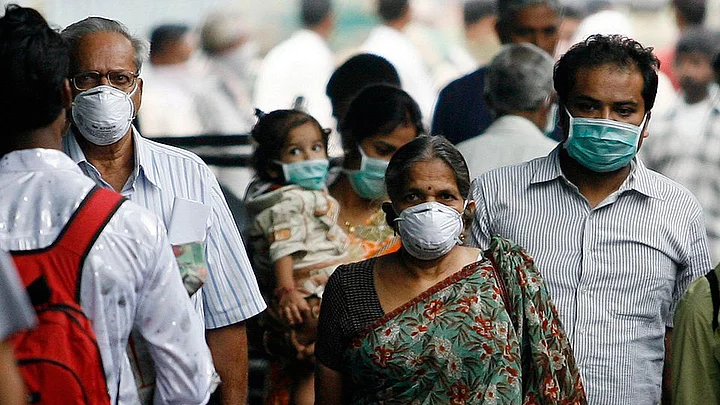Death toll across the country due to swine flu has soared to 312 with the number of deaths in the last week recorded at 86, according to data released by the Union Health Ministry on Monday.
Over 9,000 persons have so far been affected by the H1N1 virus, with Rajasthan still topping the list with highest number of cases and deaths, according to the data.
Swine flu has affected 9,367 people in the country till Sunday with Rajasthan reporting 107 deaths and 2,941 cases of infects, followed by Gujarat at 55 deaths and 1,431 people being infected, showed the data.
Punjab has reported 30 deaths and 335 cases followed by Madhya Pradesh, which has reported 22 deaths and 98 cases.
Swine flu has claimed 17 lives in Maharashtra and affected 204 people. Delhi so far has witnessed seven deaths due to the H1N1 virus and 1,669 cases of infection, followed by Haryana recording seven deaths and 640 cases. Telangana has recorded five deaths and 424 cases of infection.
With the number of swine flu cases going up, the Health Ministry has asked state governments to bolster their surveillance for early detection of the disease and also keep beds reserved in hospitals to deal with acute cases, which require ventilator facility.
States have also been advised to involve district collectors in enhancing public awareness and outbreak response, a health ministry statement said.
The guidelines for influenza vaccination and the details of manufacturers of vaccine provided by Drug Controller General of India have been shared with all states. Communication material for preventive measures has also been shared. Video conferences are also being held regularly to monitor the situation.
Advisory for preparedness to seasonal influenza A (H1N1) was issued and the Integrated Disease Surveillance Programme (IDSP) and its state units have enhanced surveillance for Influenza like Illness (ILI) and Severe Acute Respiratory Infections (SARI).
The Drug Controller General of India has been asked to coordinate with drug manufacturers and monitor the availability of Oseltamivir, the medicine recommended by WHO, in various states.
The Health Ministry has recommended vaccination for healthcare workers and other priority groups.
The health advisory states that seasonal influenza (H1N1) is a self-limiting viral, air borne disease spread from person to person, through large droplets generated due to coughing and sneezing, indirect contact by touching a contaminated object or surface and close contact, including handshaking, hugging and kissing.
The dos and don'ts mention covering nose and mouth with disposable tissue or handkerchief while coughing or sneezing, washing hands with soap and water frequently, avoiding crowded places, maintaining isolation, drinking plenty of liquid and consulting a doctor.
According to the advisory, one should not touch the eyes, nose or mouth with unwashed hands, or hug, kiss or shake hands while greeting, or spit in public places, and dispose of used napkin or tissue paper in open areas.
(At The Quint, we question everything. Play an active role in shaping our journalism by becoming a member today.)
